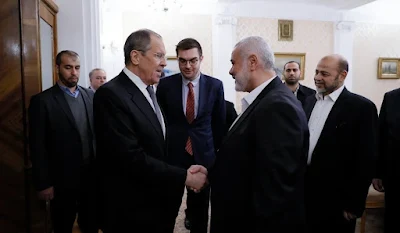
Norman Finkelstein: Israel is facing an existential crisis and South Africa offers a model for a one-state
The American Jewish historian, Norman Finkelstein, argues that “Israel” is facing an existential crisis for the first time since its establishment, and suggests that South Africa offers a model for a one-state solution for one people of different backgrounds.
The American Jewish thinker and historian who opposes the Israeli occupation policy, Norman Finkelstein, said that “Israel” has obstructed all political solutions in its war on the Gaza Strip. In a symposium held with students at Princeton University, Finkelstein said: “At the current stage at least, we have reached the end of any kind of diplomacy to resolve the conflict,” adding that “talk about a two-state solution seems absolutely ridiculous, and there is no diplomatic solution.” appears in the horizon".Finkelstein believed that "at the level of the Arab and Islamic worlds, a conclusion has been reached that living with Israel is impossible," adding that according to the Arab and Islamic worlds, it is "moronic and must go. For this reason, there is no political solution on the horizon in the short term."
Finkelstein's talk and comments were published on YouTube.
It must be noted that the two-state solution is promoted as the only solution, which is now becoming very hard to realize, when other examples from around the world point to other alternatives. One of these examples mentioned here is the South Africa example. For years the apartheid regime created systems that dehumanized the people of South Africa. The oppression was built in part on the false idea that Africans are incapable of building and running a democracy. All that was proved wrong: Africans overthrew the racist regime but did not purge South Africa of white people. The preserved South Africa as one country for all.
Other examples of single-state solutions to conflict zones
are in the Middle East region and they were in part promoted and engineered by
Western governments and their regional allies. The Lebanese example is just on
the other side of the border: After 15 years of civil war, Christians and
Muslims settled to live, still in tension, but in peace, thanks to a power-sharing
system that allows Christians, Shia Muslims, and Sunni Muslims to create a calibrated
power sharing system to preserve the national unity of Lebanon.
After the US invaded Iraq, the constitution and institutions
that were produced under the authority of the occupying forces of the United
States, produced a power sharing structure that allows the Kurdish people, the
Sunni Muslims, and the Shia majority to live in relative peace. It is worth
noting that the current president, then a senator, Biden, promoted the idea of
breaking up Iraq—a tri-state solution if you will.
If the South African, Lebanese, and Iraq models of a single-state
solution whereby different peoples, separated by religion or ethnicity, can coexist
and govern through power sharing structures, why would a single-state solution that
would allow Jews, Christians, and Muslims to live in peace through some sort of
power-sharing formular be impractical? And how would a two-state solution solve
the problem of the non-Jews, nearly 30% of the population who are Christian and
Muslim, who would end up in Israel under any border configuration, should the
two state-solution come into existence?
As the world community is forced to address this 75-year old
conflict, there is much to be learned not only from the moral force that
compelled South Africa to stand against genocide, but to offer a practical example
of many peoples in one nation living in relative peace despite the cruelty of
the past.



























































































